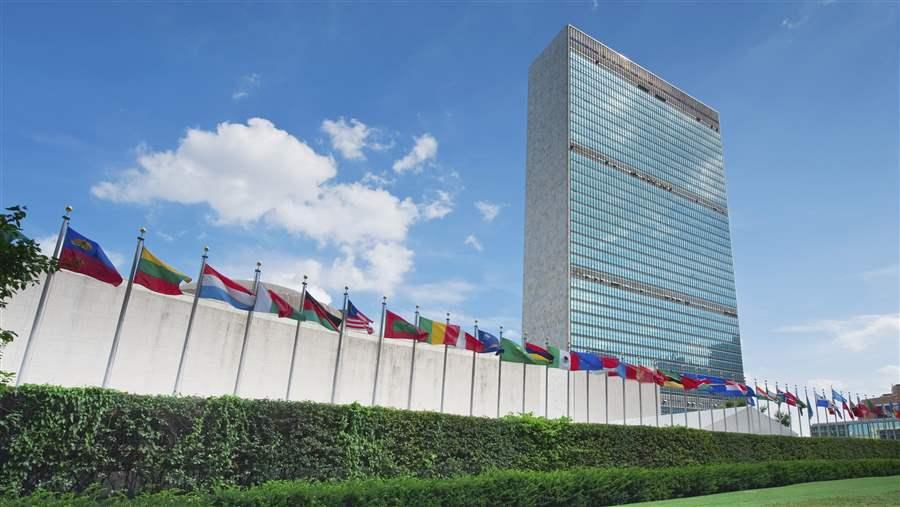Governments Show Strong Support for a High Seas Treaty
A U.N. committee calls for negotiations to start on pact to protect vast areas of the ocean

States met in New York last month to develop substantive recommendations for this landmark ocean treaty.
© Tetra ImagesAfter two years of meetings, and building on more than 10 years of debate and discussion, a key U.N. committee has recommended that the General Assembly move forward as soon as possible with an intergovernmental conference to negotiate an international treaty to protect the high seas.
The treaty would help governments effectively manage and conserve ecosystems in the vast portion of the ocean known as areas beyond national jurisdiction, including the high seas. These waters lie beyond countries’ exclusive economic zones and belong to everyone, but are governed by no one. While regional fisheries management organizations, the International Seabed Authority, and other bodies exert control over some extractive activities, there is no governance structure in place to coordinate efforts to ensure protections for areas rich in biodiversity in the open ocean.
This treaty would help to fill that gap and provide governments with a mechanism to establish marine protected areas (MPAs), including fully protected marine reserves to protect critical regions from such threats as uncontrolled fishing and seabed mining.
At the fourth and final session of the U.N. Preparatory Committee (PrepCom), held in New York from July 10-21, countries fleshed out substantive recommendations for this first-of-its-kind ocean treaty and finally agreed it was time to commit to protecting the high seas.
This powerful call to action shows the remarkable progress of the international community in recognizing the importance of the ocean to life on Earth. In the past, little was known of these areas, but the science on high seas biodiversity has grown tremendously over the past five years.
A recently published synthesis of 271 research papers conducted by Oxford University highlights that biodiversity and reveals how human activities such as overfishing, mining, and shipping can harm ecosystems and disrupt the ecological connectivity of these areas. Another study, published in June in the Proceedings of the National Academy of Sciences, shows that large-scale, fully protected marine reserves can help ocean species and ecosystems weather the impacts of climate change by providing a haven for marine life to build resiliency without the added stresses from human activity.
The United Nations has committed to set aside 10 percent of the ocean and coastal areas for protections by 2020, but some scientists say that’s insufficient. The International Union for Conservation of Nature has recognized the importance of setting aside at least 30 percent of the ocean in MPAs to maintain marine biodiversity and ensure that the ocean can continue to meet humanity’s needs. The Pew Charitable Trusts believes that meeting that target would indeed make an enormous difference in the health of the ocean for years to come. To help achieve that, the high seas treaty should include mechanisms to identify areas to protect, establish MPAs and reserves in those places, and ensure that they are properly managed and enforced.
The PrepCom outcome marks a rewarding step forward for ocean conservation advocates, and brings needed public attention to the issue. But ocean lovers, conservationists, and governments have much work to do, including ensuring that the General Assembly begins treaty negotiations in 2018. The future of the high seas depends on a strong treaty that demonstrates a global commitment to ocean protection.
Liz Karan directs The Pew Charitable Trusts’ campaign to protect ocean life on the high seas.







